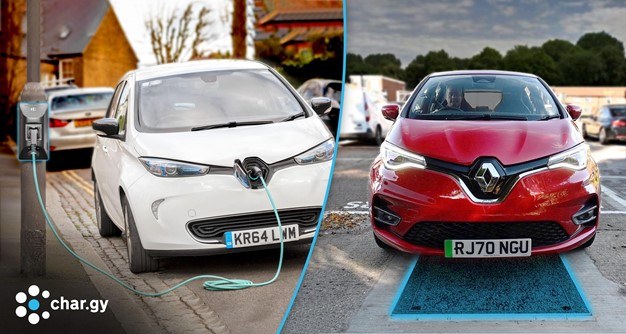Electric vehicle (EV) charging firm char.gy said it has today (15 December) confirmed the world’s first trial of public EV inductive charging, having launched in Marlow, Buckinghamshire in October.
A further 7 locations to be added in the London Borough of Redbridge and Milton Keynes, with this first trial using a low-power inductive charging installation provided by technology partner IPT Technology and adapted vehicle available for public hire through the hiyacar.co.uk app and website.
Inductive charging – which involves integrating charging infrastructure into the road surface and installing an induction charging pad in the EV – can help simplify the charging experience, de-clutter busy urban pavements and improve accessibility.
This is because the charging cable is removed, therefore removing trip hazards for pedestrians and allowing less mobile, elderly or disabled drivers to avoid navigating kerb drops between road and pavement to plug in the cables.
Research from Motability and Designability published in August showed that challenges still remain for disabled drivers, with the charities stating that public EV charging is “failing” disabled drivers.
Similar research from SSEN the month before showed how the weight of charging cables, height of charging stations and suitability of parking arrangements can all impact on a disabled driver’s charging experience.
New accessibility standards for EV charging are currently being developed in a partnership between the Department for Transport (DfT) and Motability, with the two commissioning the British Standards Institute for the new standards.
Alongside solving some of the issued faced by disabled drivers, induction charging is also another solution for drivers without off-street parking. This is already a key focus for char.gy, which already has a portfolio of lamppost charging. The company said that with 50% of the UK’s car fleet expected to be battery electric by 2030, 70+% of vehicles will inhabit urban residential areas such as London without access to off-road charging.
Other EV charging companies providing on-street charging including Connected Kerb – which is aiming to deploy 190,000 public on-street chargers by 2030 – and ubitricity, with 50,000 ubitricity on-street EV charging posts to be installed by the end of 2025.
Connected Kerb has also been deploying induction charging, while a trial of the charging technology in Nottingham has been developed by Sprint Power.
The next stages of char.gy’s induction charging project will see the scheme extended to a variety of different urban contexts and geographies as a precursor to the test of the second-generation inductive fast charger which has been developed by char.gy’s partner, Warwick Manufacturing Group.
“Inductive charging takes another step towards making on-street charging in urban contexts the de facto solution for people without off-street parking who want an EV; so we’re delighted to have successfully concluded the first trial of the technology ‘in the wild’,” said Myles Roberts, char.gy’s project manager for inductive charging.





